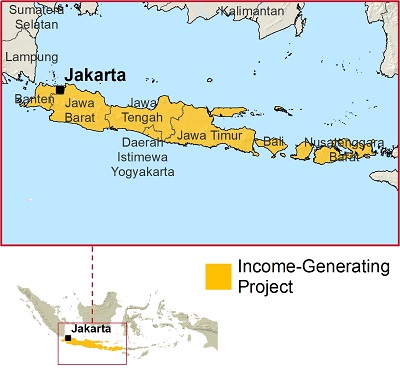Income-Generating Project for Marginal Farmers and Landless
IfadAssetRequestWeb
Agrégateur de contenus
Income-Generating Project for Marginal Farmers and Landless
The project's primary objective was to raise the standard of living among the poorest rural families by promoting activities both on- and off-farm), through credit.
By the project's end, more than 48,000 small farmers' groups had been set up by the Ministry of Agriculture. About 38,000 of the groups received at least one loan and nearly all of the groups received training in financial planning and management. The incomes of the participating families rose by between 41 and 54 per cent on average.

Rapports du Président
Rapports de conception du projet
Documents de supervision et d'appui à l'exécution
Étude de l'impact environnemental et social
Cadre de gestion environnementale et sociale
Rapport sur l'examen à mi-parcours
Cadre d’action de réinstallation
Condensé de rapport d'achèvement de projet
Études spéciales
Liste de projets
Audit et états financiers
Rapport d'achèvement de projet
Co-financeurs
À propos du projet
À propos du projet
IFAD Supported Training and Apprenticeship within the Rural Enterprises Project Phase II in Ghana - A Field Study of Training Approaches and Outcomes
juin 2011
As part of its initiative for mainstreaming innovation, the International Fund for Agricultural Development (IFAD) explored various types of training and skills development activities in the programmes supported by the Fund and which training results have been achieved including through innovative ways.
In Ghana the IFAD supported programme Rural Enterprises Project Phase Two (REP II) has enhanced Business Development Service (BDS), and Technology Promotion and Support to Apprentice Training (TPSAT) in about 53 districts in since 2003.
The objective of this Ghana field study is to document the diversity of approaches of training and skills development in IFAD supported programmes. In particular, it aims to assess their relevance, effectiveness and efficiency, outcomes and challenges.